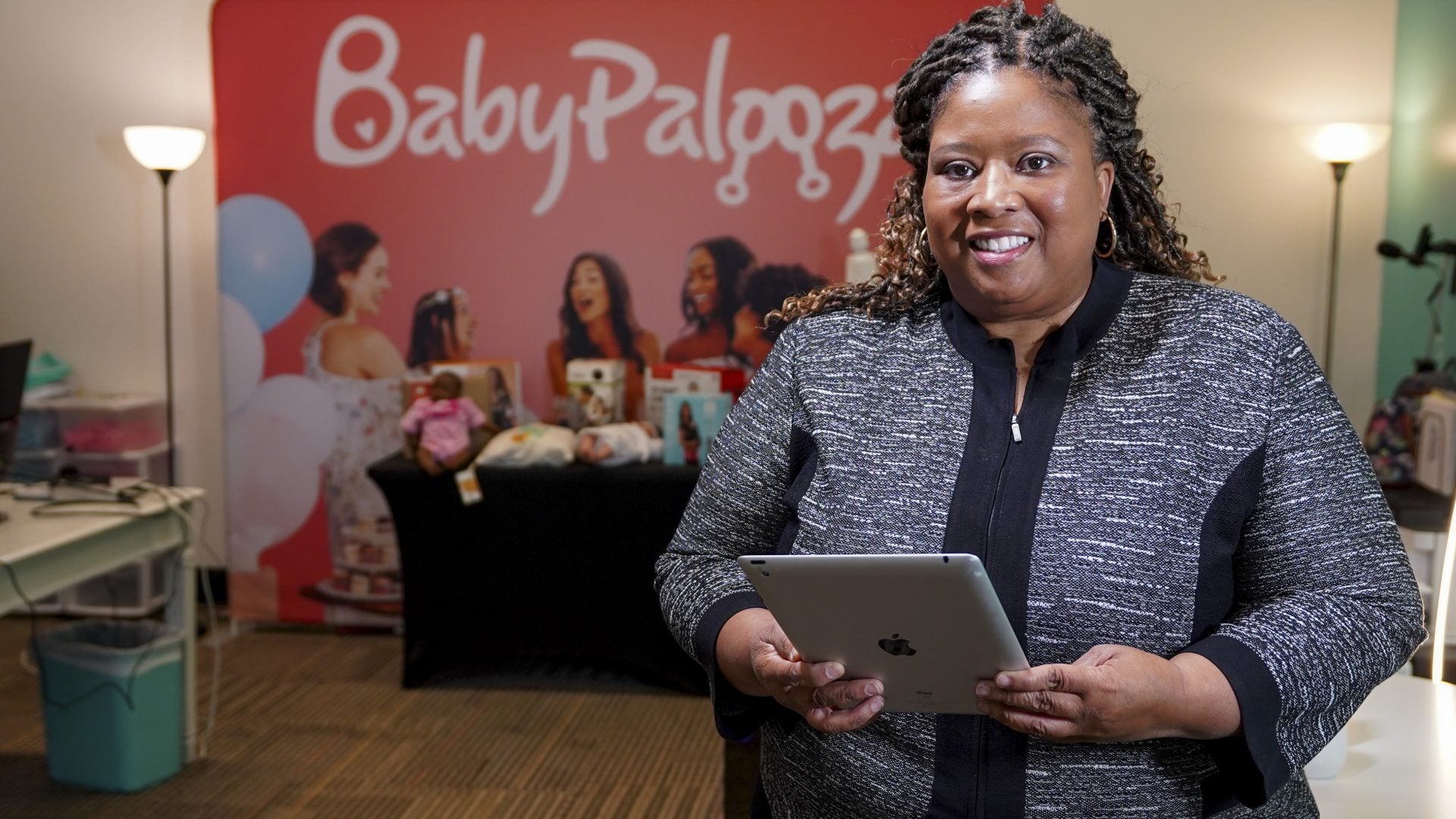
For Cecilia Pearson, it was important to help new parents struggling with the significant shifts in their lives. The founder and CEO of Babypallooza, an online hub that aims to address the fear and loneliness first-time expectant moms and dads often experience, saw a gap in the market and sought to provide answers to important questions.
“In my hometown of Birmingham, Alabama I’d see women with new babies and just thought about how important it is for them to tap into the information and support they truly need,” Pearson shared with Essence.
Beginning in 2005 as a magazine, Babypalooza has since expanded the events space, providing marketing products and supplying information both online and via highly engaging and well-attended baby expos. The company has enjoyed steady growth over its 17-year span, which recently celebrated a birthday on August 4. However, like most Black-owned businesses, it was hit hard by the pandemic.
With a large percentage of Babypalooza’s business model dependent on expos and meet-ups, Pearson was faced with the challenge of reimagining her company’s offerings. “COVID-19 was definitely a challenge but it was a bit of a blessing in disguise because it encouraged us to strengthen our digital strategy,” Pearson said. “Fortunately, we were able to curate powerful online communities with our e-meet ups, daily Livestream learning with top health experts, and social media content that will stay with our users from pregnancy through preschool.”
Pearson is no stranger to grit. The ingenuity it took to pull this pivot off was ingrained from an early age. Coming from a long line of strong female entrepreneurs, Pearson learned early on what it meant to be an effective leader.
Her mother was one of the “few black female employees to integrate the staff at the Social Security Administration before going on to be a manager with the Department of Industrial Relations for the state of Alabama,” she shared in another interview with The Birmingham Times.
“My grandmother, Sarah Hooks, the person I was closest to growing up, was an incredible seamstress. My great-grandmother, Lula Hooks, was born in the 1800s and owned a store called Simmon Hill Grocery, located next door to Wenonah High School on the west side of Birmingham. … She also owned several houses in Birmingham,” she shared.
So, it came as no surprise when her family became her earliest investors at Babypalooza’s launch 17 years ago. “My mother and many other women in my family are ride-or-dies and helped me realize my dream through both monetary support or sweat equity,” Pearson said.
She understands how rare that level of support is for early entrepreneurs so she shared some key advice for those aiming to scale their businesses from the ground up alone. “I would first ask that aspiring entrepreneurs be realistic with themselves,” she implored. “Before anything, you need financial backing. It takes money to make money. If you start a business without adequate growth funds within the first 3-5 years, you won’t make it.”
She shared that one of the best moves new founders can make in the fundraising process is partaking in business accelerator programs, which she still taps to this day.
Pearson shared that through her participation in an accelerator, she recently became one of the first four portfolio investments announced by Bronze Valley, a nonprofit, early-stage venture investment platform that supports high-growth, innovation-focused, and technology-enabled companies created by underrepresented founders. The 13-week program supplied Pearson with $50,000 to help continue to amplify the digitization of Babypalooza.
She was also selected to participate in Innovation Depot’s Velocity Accelerator, which provides entrepreneurs with real-world exposure to grow and scale their businesses.
“Those accelerator opportunities have given me the foundational tools I didn’t have beforehand,” she shared. “I’ve knocked on so many doors asking for mentorship from some of these larger CEOs and have been told ‘no’ so many times. I was able to get that knowledge on my own, with the help of those programs.”
Pearson also shared that it’s important to remember the ‘why’ when faced with challenges as a growing entrepreneur.
“The pandemic has been tough on the brand, but my mission keeps me going,” Pearson shared. “I just keep reminding myself my mission has and always will be creating a safe and supportive community for new mothers waiting to join her on the journey.”
